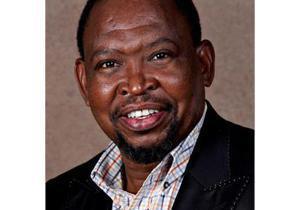The finance minister presented his maiden MTBPS on the 11th of November. Below are some key extracts:
The COVID-19 pandemic has magnified South Africa's crises of poverty and unemployment. Building a prosperous society requires much higher levels of economic growth, supported by structural reforms, improved state capacity and sustainable public finances.
Government has long directed the majority of public spending to address deeply entrenched poverty and unemployment. The social wage - combined public spending on health, education, housing, social protection, employment programmes and local amenities - remains high by global standards, averaging 59.5 per cent of consolidated non-interest spending over the next three years. But the decade-long decline in South Africa's GDP growth, combined with a large increase in public debt, has led to an unsustainable position.
Over the next three years, government will pay more for interest on its debt - an average of 21 cents of every rand collected in revenue per year - than it will spend on health, social development, or peace and security. Stabilising the debt burden is therefore essential for fiscal sustainability and freeing up the resources needed to support economic and social priorities.
Since the 2021 Budget, South Africa has benefited from a surge in global demand for our commodities. Higher commodity prices have temporarily increased economic growth and tax revenue. This windfall is a welcome once-off boost, but revenue remains well below pre-pandemic projections.
Meanwhile, greater economic output has failed to lift investment and employment, due to the structural nature of our economic underperformance. Businesses remain constrained by longstanding obstacles like electricity shortages, inefficient and high-cost rail freight, inadequate broadband spectrum and red tape. Progress in implementing reforms, apart from some important steps to bolster competition in electricity supply and ports, remains slow. And global borrowing conditions are becoming less favourable, indicating that issuing debt is likely to become more expensive.
Over the period ahead, government will accelerate structural reforms to promote growth, while keeping fiscal consolidation on course to narrow the budget deficit and stabilise debt. The temporary tax revenue windfall will be used to reduce the borrowing requirement. It will also be targeted at short-term support for people and businesses affected by COVID-19 and the outbreak of public violence in July of this year. A disciplined approach will enable government to achieve a primary budget surplus - meaning that revenue will exceed non-interest spending - from 2024/25, bringing the period of fiscal consolidation to a close. At the same time, government will be assessing the effectiveness of large spending programmes to ensure that South Africa can achieve greater value for public money.
We all want a vibrant, growing economy that enables people to earn an income and businesses to innovate, hire new workers and invest in the country. Over the medium term, government intends to shift expenditure away from consumption and crisis response towards growth-enhancing investment. Public spending can build the foundation but cannot substitute for private-sector investment and job creation. In this regard, structural reforms will help boost confidence and investment in the economy.
The minister is making the right noises, but as in the past, implementation is the key issue. We will keep you informed of progress of key economic reforms.

